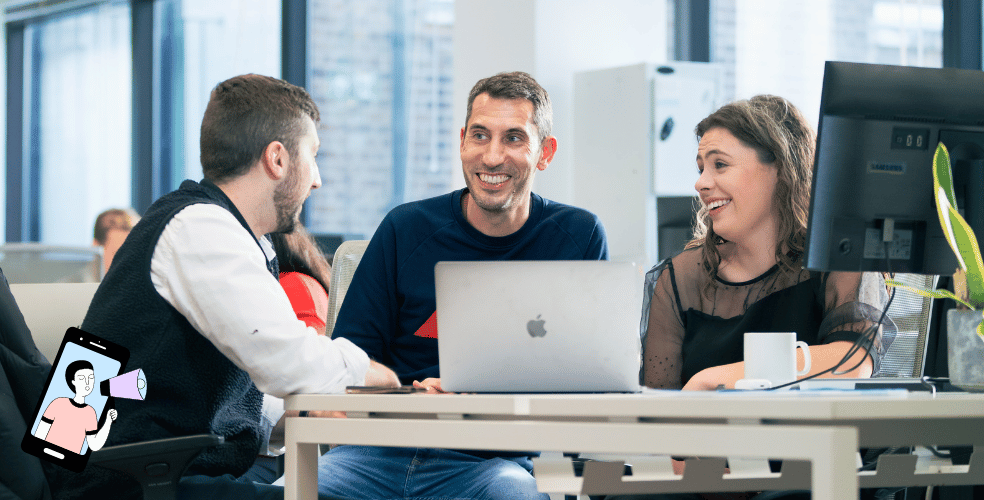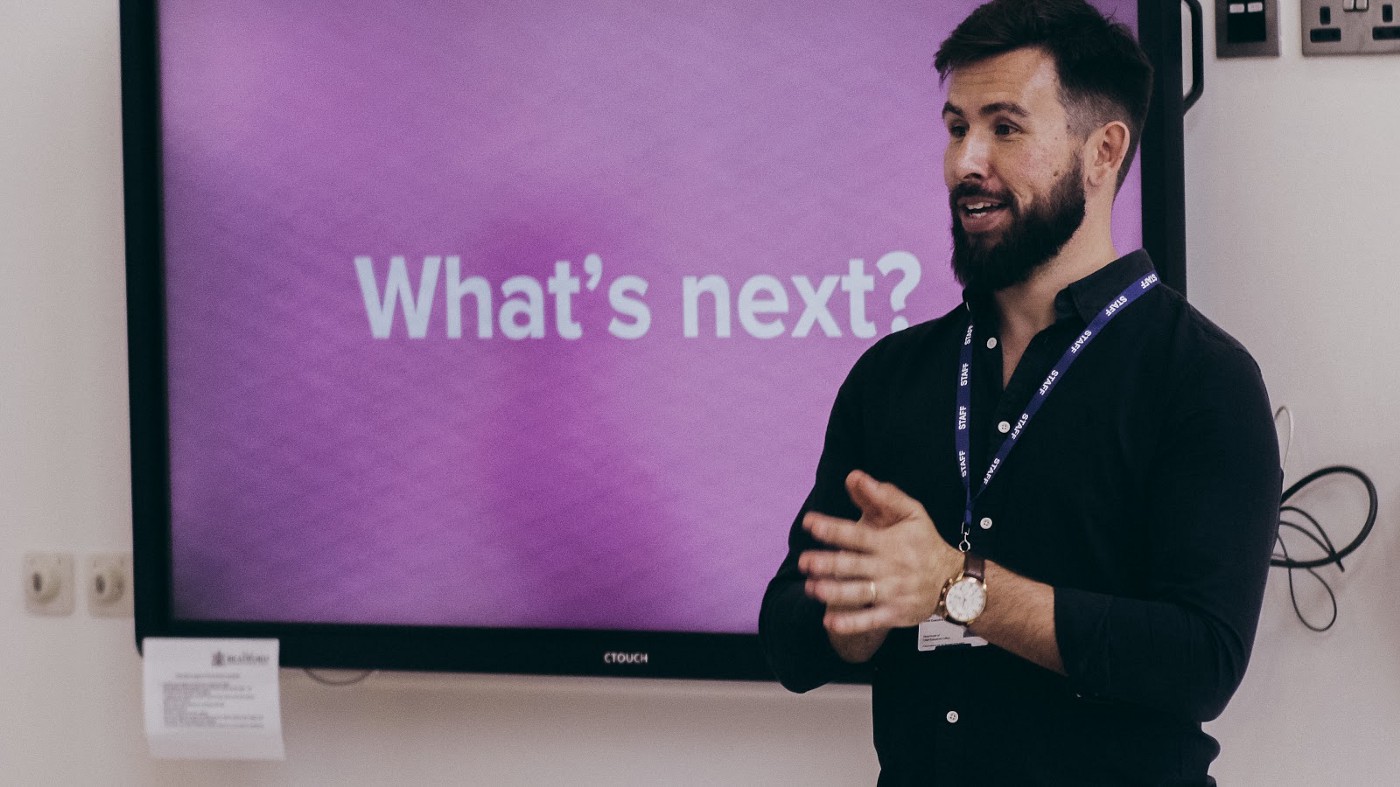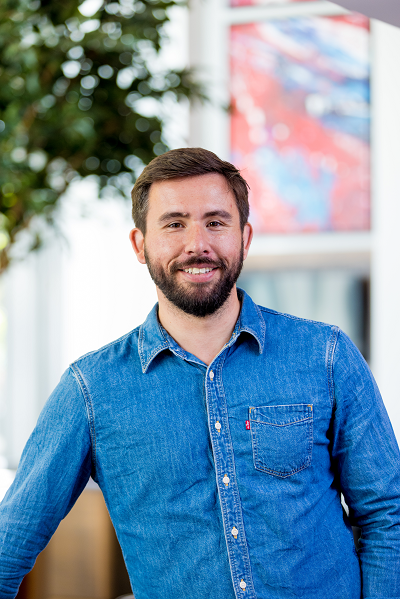Transformation is hard. It’s a big deal, with pressure to get things done right and done quickly. There’s a lot happening, and when you can’t see the edges of your work it’s hard to know where to start (and stop).
Change programmes and the people they involve can get lost in ‘the system’; drawn into big, cross-cutting issues.
It can help to break down these big, overwhelming challenges into smaller parts with achievable goals. Specificity isn’t the enemy of vision or strategy. By thinking about the specific parts of a system or service, and how they relate to one another, we can begin to understand the interactions between them and identify opportunities for change.
Start small, think big
At TPXimpact, we’ve been using these lenses for service transformation to help organisations work through the challenges of breaking down transformation into smaller parts. Each lens is an area of focus that staff have agency over, allowing us to examine where problems and change opportunities are. When added together, they are the parts that make up a whole system.
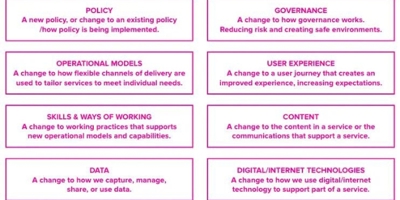
These lenses support us in our mantra of ‘start small, think big’, because it’s easier to think about change to content or a change to policy, rather than immediately conceptualising what total change in all areas of a service might look like.
For example, while a change to content alone won’t solve system level issues, it will begin a process of change that shifts practice and perception in other areas. It can be the first step toward the ever elusive momentum.
Putting it into practice
I followed this approach when leading a review of adult services with North East Lincolnshire Council. Together, we focused on how the council can provide better, cheaper services that improve the experiences of residents. Throughout the project, how TPXimpact approach change was a recurring topic of conversation. These eight lenses for service transformation proved instrumental in answering this question.
On many occasions, I was lucky to have large groups of willing and determined senior leaders in the room, ready to make change happen. This presented me with the interesting challenge of tempering the desire to try and solve everything at once.
Examples of focusing on different areas for change
By focusing on specific challenges, starting small and thinking big, we were able to test assumptions and build a platform for long-term change.
Skills and ways of working
It’s one of our core beliefs at TPXimpact that we not only make change happen, but we make it happen in a sustainable way that supports people delivering better services. Throughout this project, we focused on supporting the team in North East Lincolnshire to build the skills needed to continue to solve big challenges, long after TPXimpact has left.
Working together throughout the project in multidisciplinary teams, we solidified a culture of working in the open. Through a mixture of Lunch and Learn sessions on agile project management, user research and service design, we planted the seeds for the team to confidently continue improving services using new ways of working. Together, we laid a solid foundation for the future.
User experience
Through user research, we developed a clear picture of the way people in need experience support in adult services.
Visually sharing the emotional impact of change for real people at key points in their journey, we were able to build empathy within the team to understand that the experience of their residents doesn’t always align with their own professional experiences.
It was a moment where it felt like a penny dropped. Everyone could suddenly see the system-wide impact of these individual changes. We never looked back!
Data
Our research uncovered that a lack of data sharing between commissioners and providers was having a negative impact on the experience of service users. It meant that they had to repeat themselves, and were tired of telling their story more than once.
To address this, we explored different ways of capturing and sharing data through prototypes. Our hypothesis was that by building consent into the referral process for services early, we could minimise the number of times people have to share their personal information.
A mixture of paper and online prototyping meant we could see and measure the impact of this change on people and operational models. Our testing for consent revealed other issues related to data and technology, that were then fed into our roadmap for change.
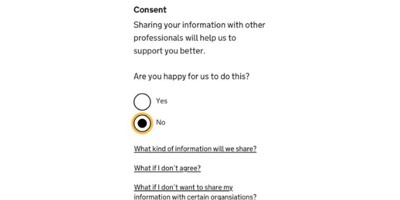
Policy
A lack of a shared vision has a negative impact on the ability of teams to work in a user-centred way. It means they struggle to work to outcomes rather than organisations.
Together with North East Lincolnshire, we designed a prototype vision and set of keyword definitions. This prototype established a common language and perspective across health and social care. The teams will be testing and iterating on this over the coming weeks with key partners and service users, ultimately designing the key outcomes and metrics that support it. The potential impact of this at a system level is significant but was started by a much smaller action.
What’s next?
We then developed a transformation roadmap for the future to help guide the Adult Services team. Through these activities, they can explore ways to improve user experience, their use of data, the content that is available to service users, and how they can make better decisions. Being able to demonstrate the value of individual ideas using these different lenses is right at the heart of this.
North East Lincolnshire Council now have the foundation to do the things right and with the right intentions, focused on users and starting small to make big, meaningful changes.
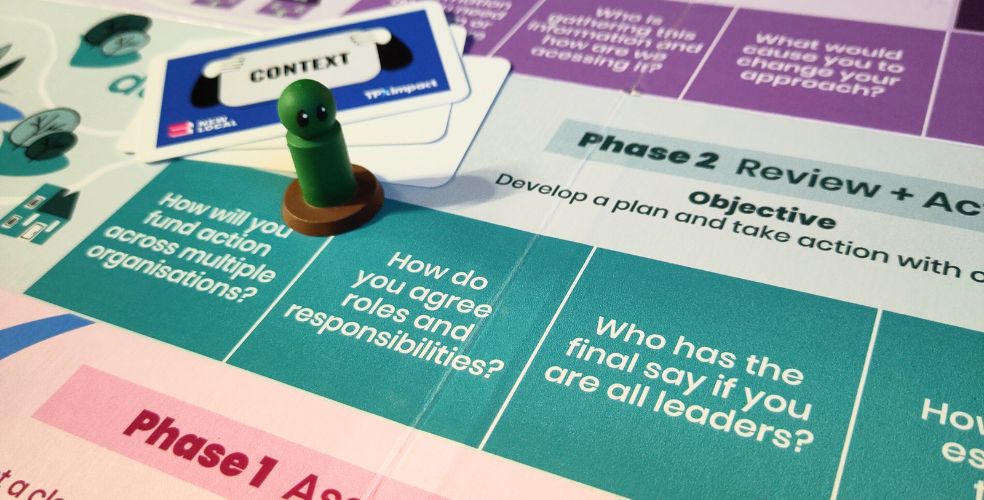
A game-changing approach to leadership
Radical Leaders: The Game! uses real-world crisis scenarios to challenge local government leaders, fostering collaboration, agility, & community focus.
Read moreOur recent insights
Transformation is for everyone. We love sharing our thoughts, approaches, learning and research all gained from the work we do.
-
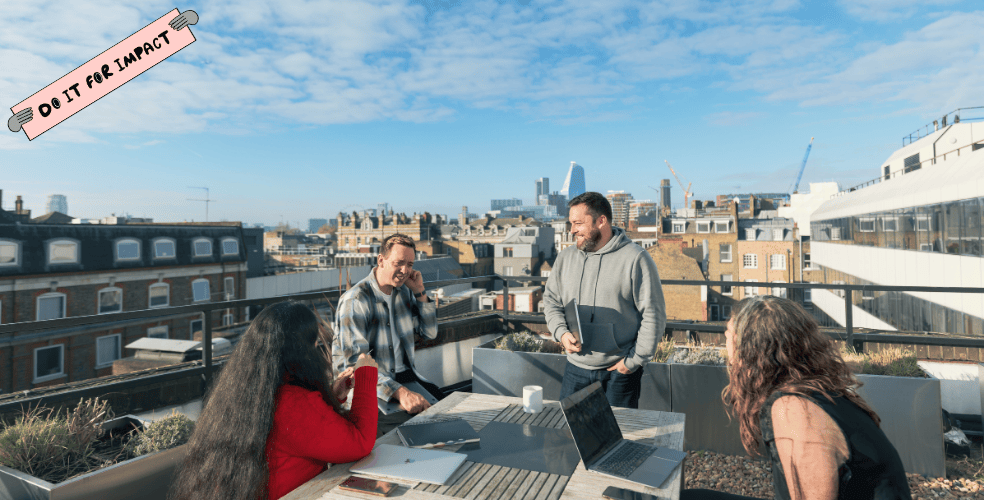
Budget 2025 reveals how digital funding really works
Read insight -

Unlocking the benefits of AI for charities
Read insight -

What's the future for open data in the UK?
Read insight -
